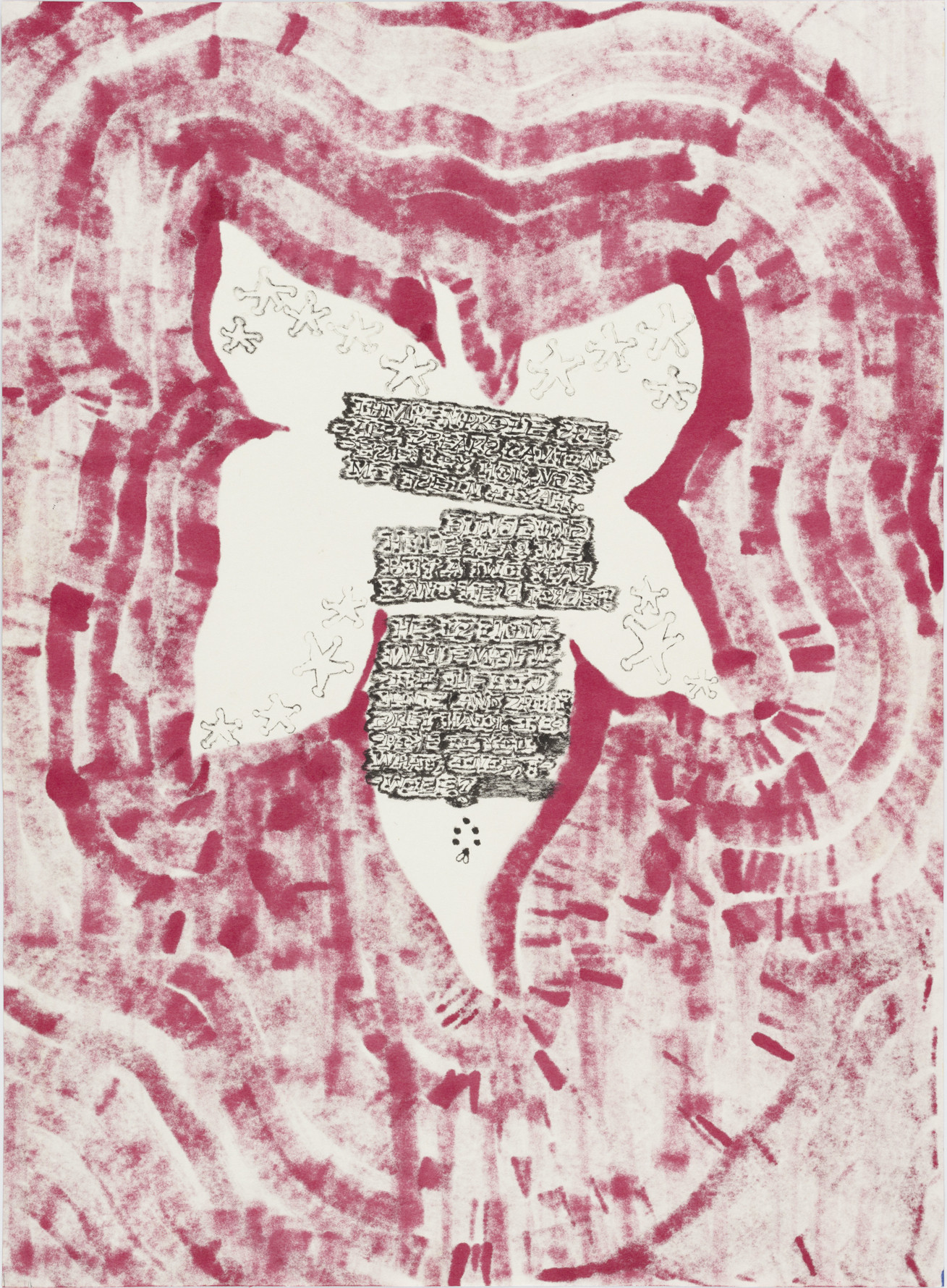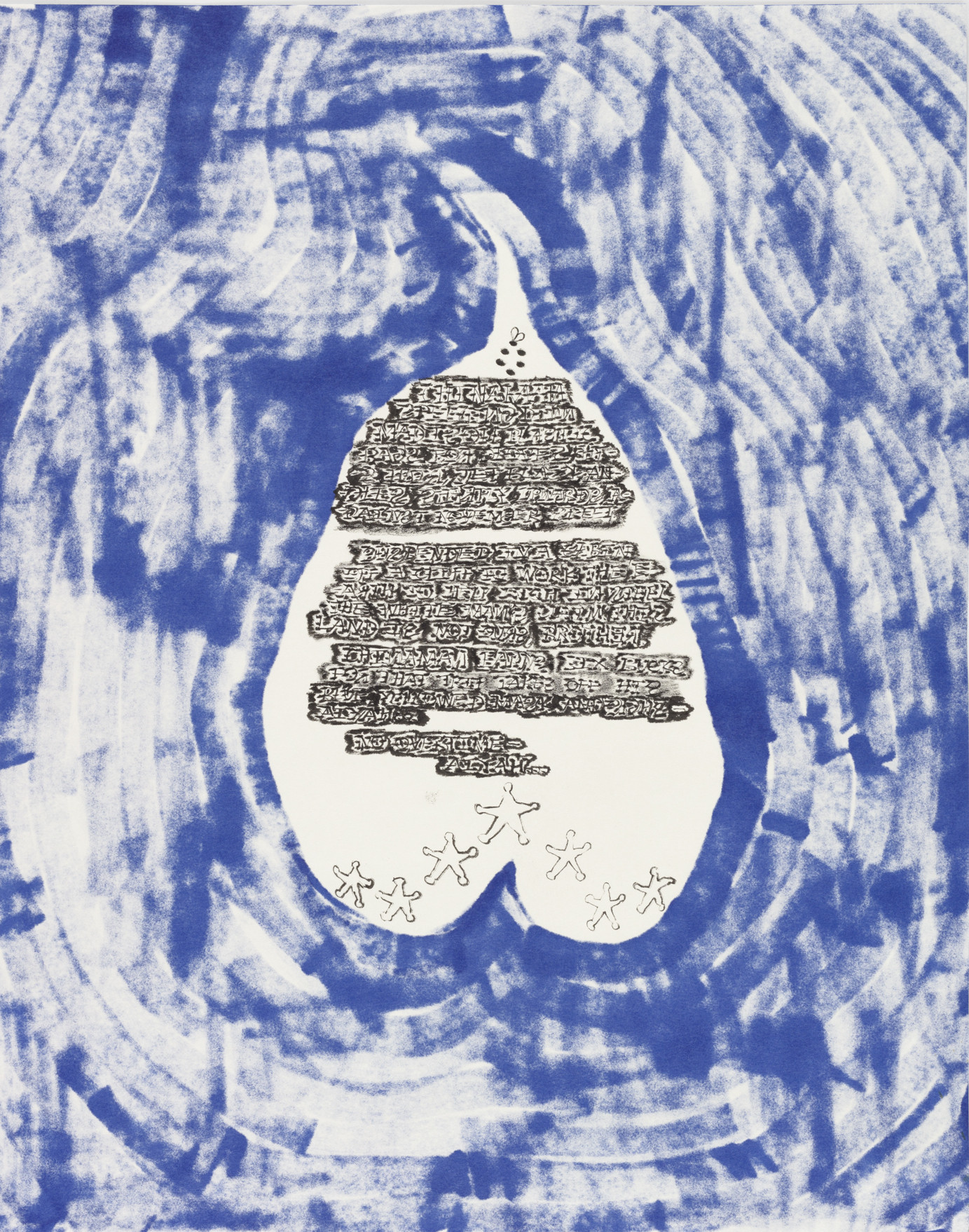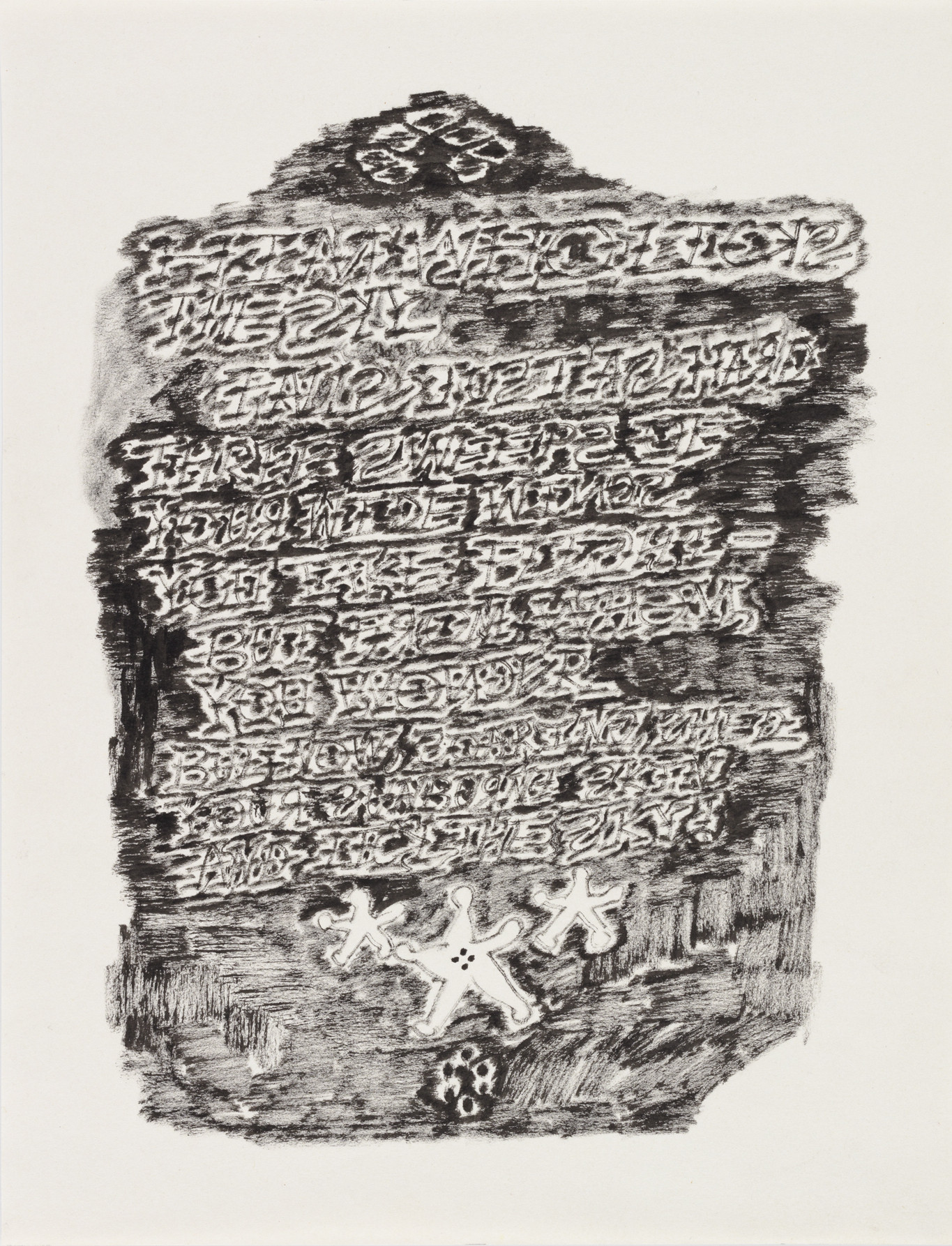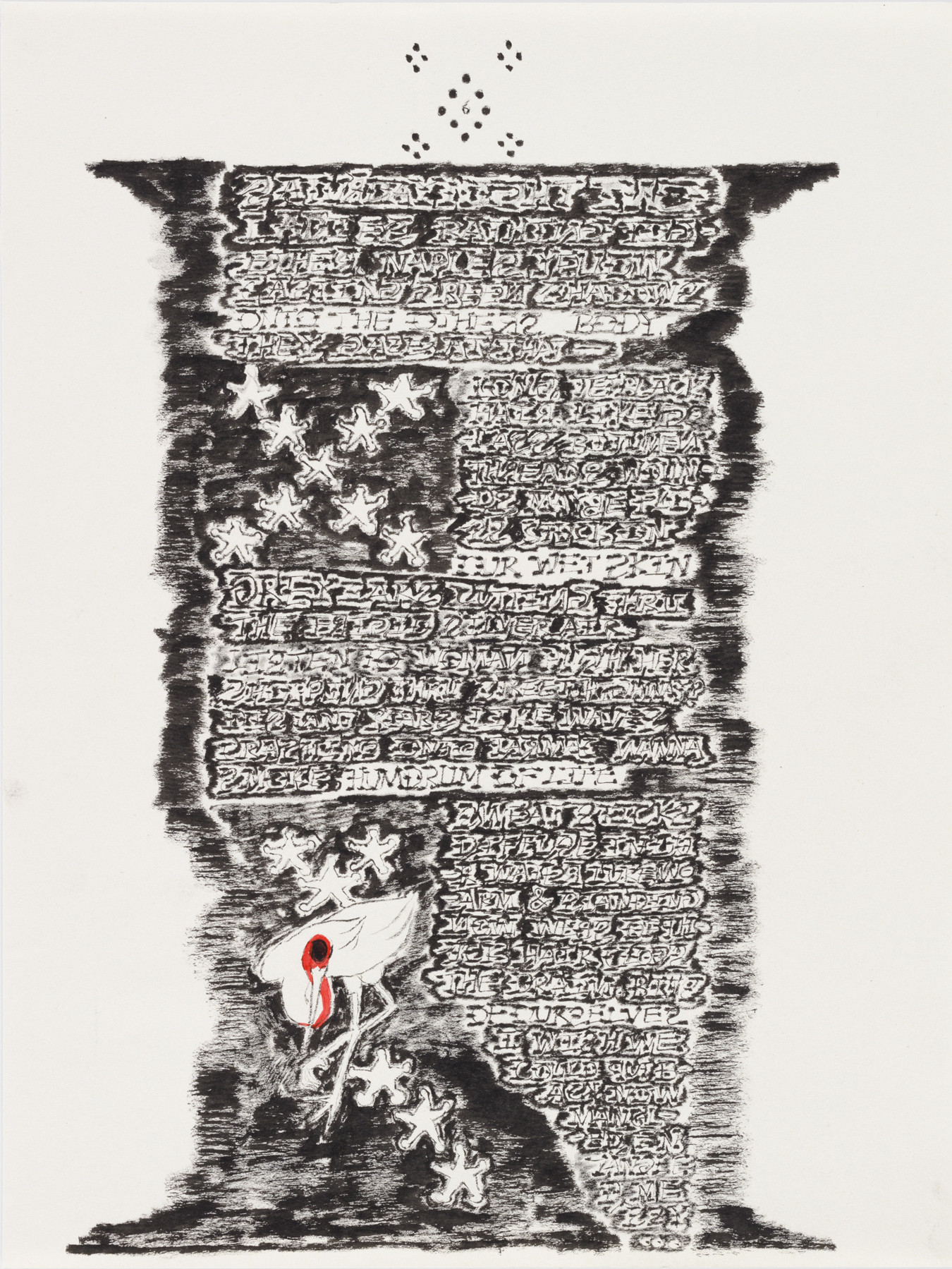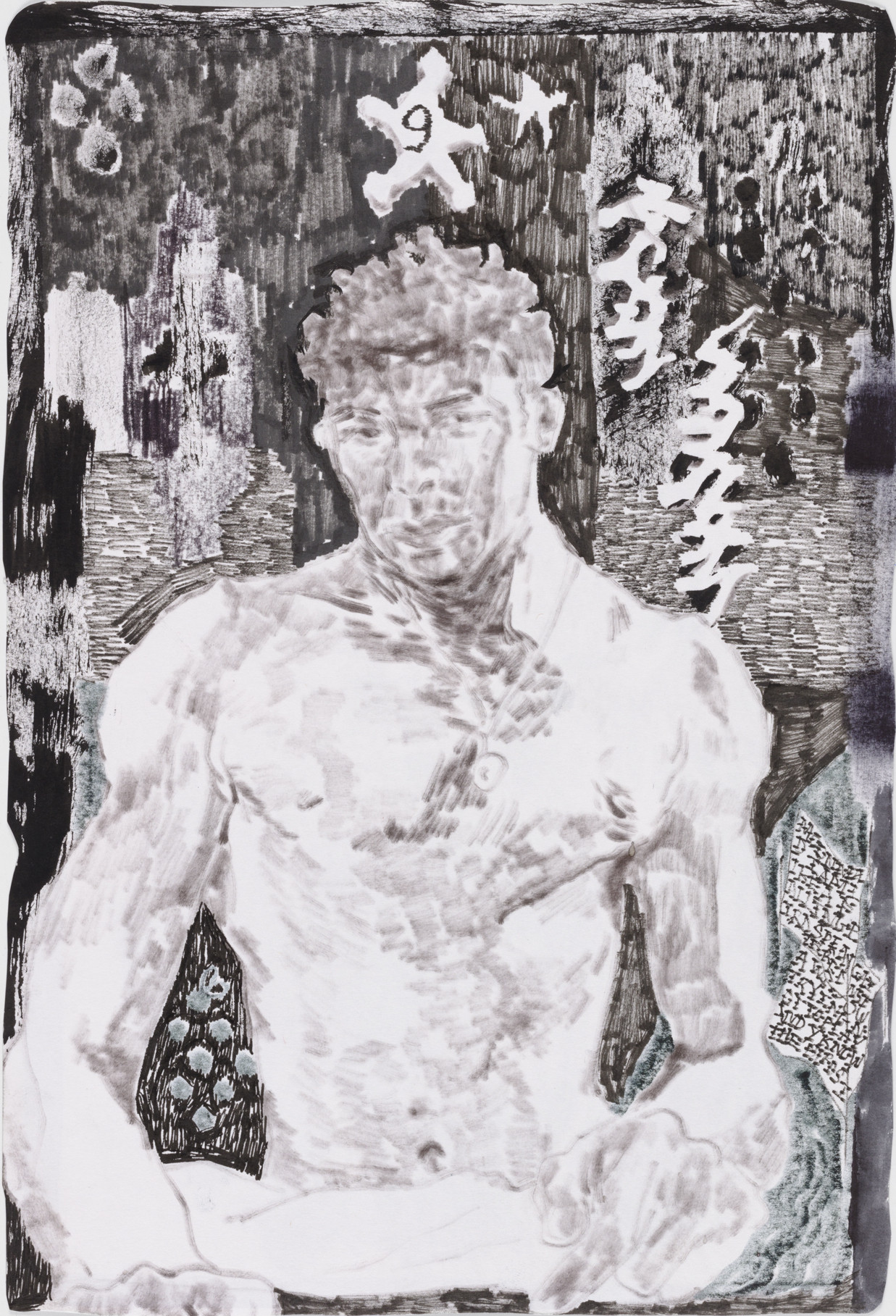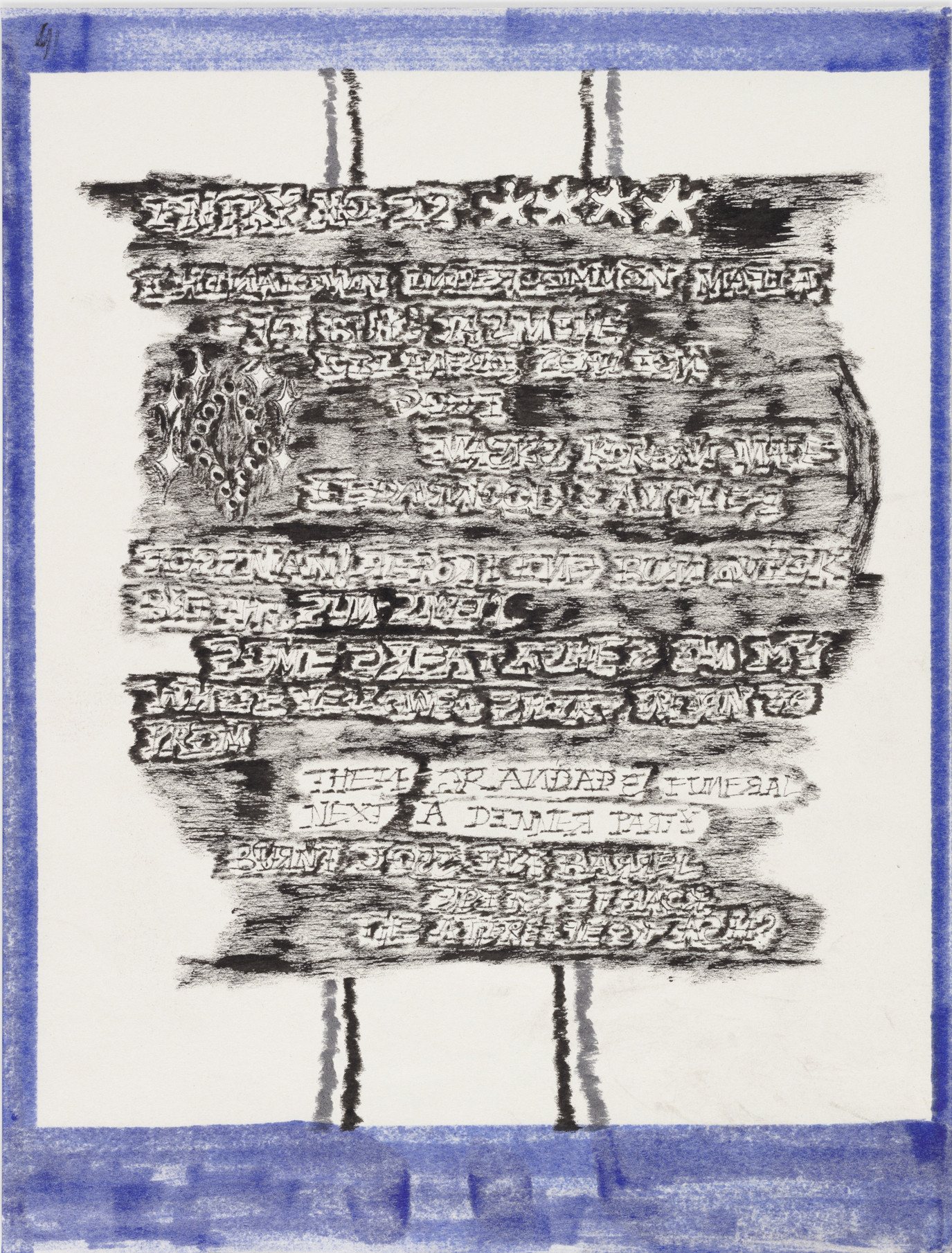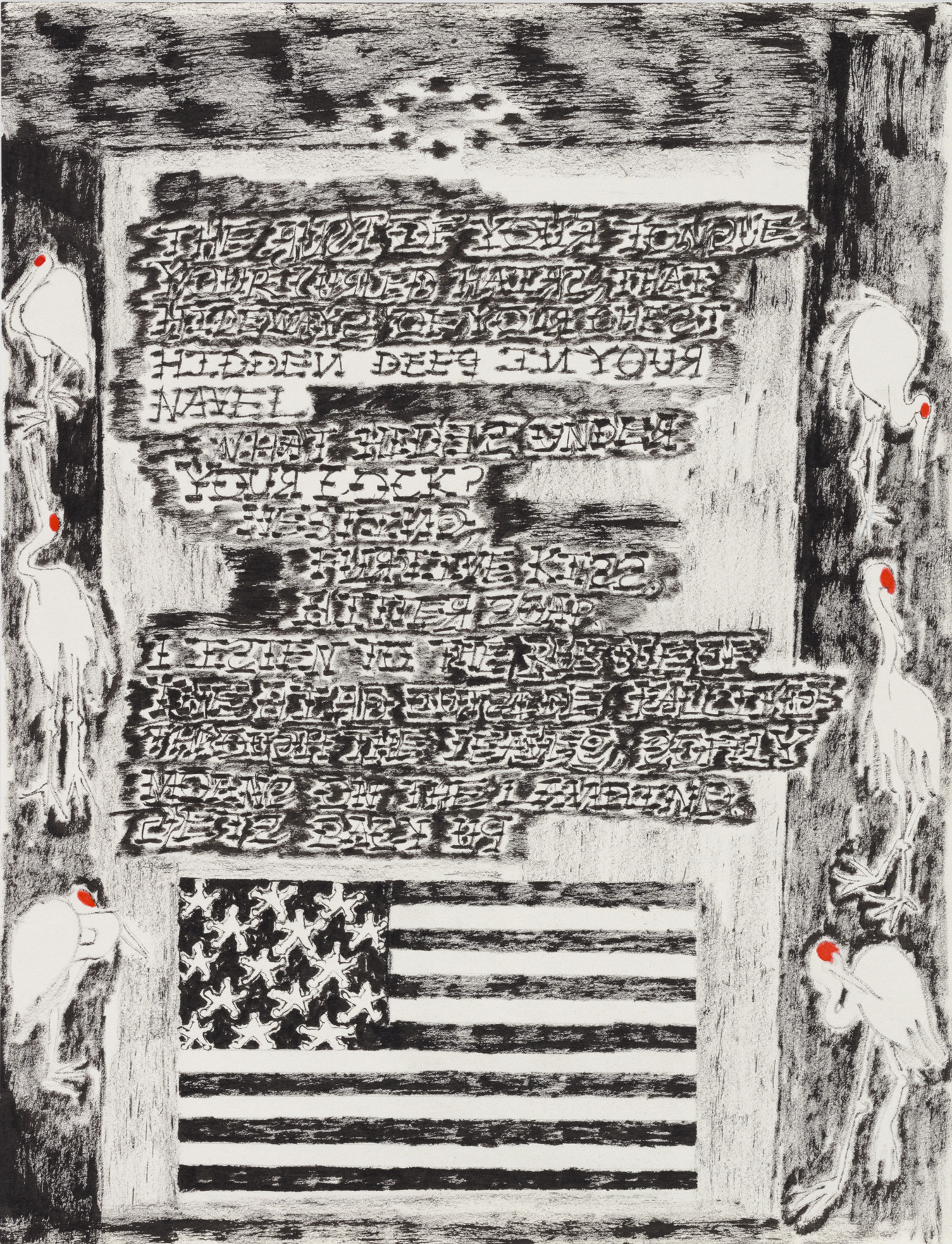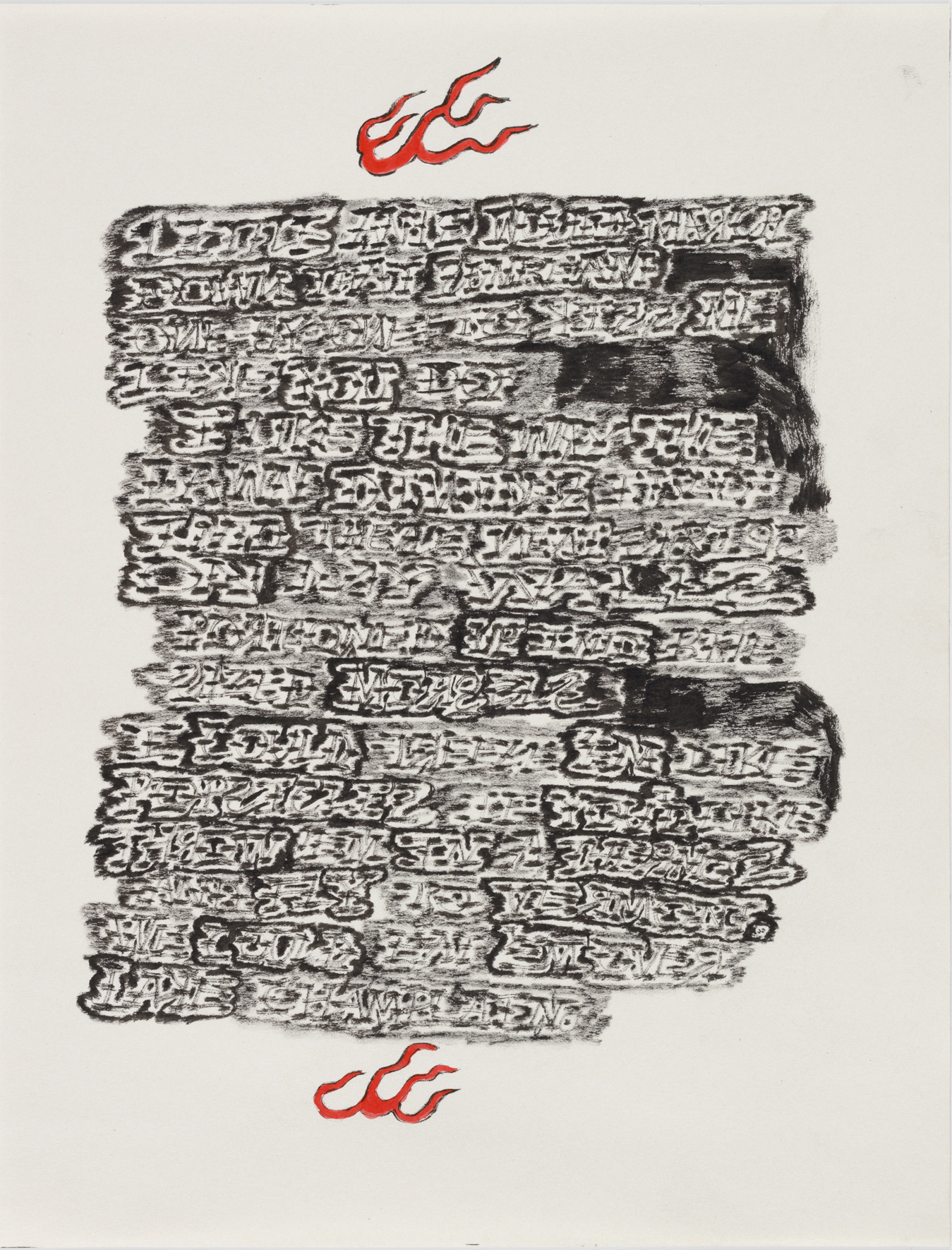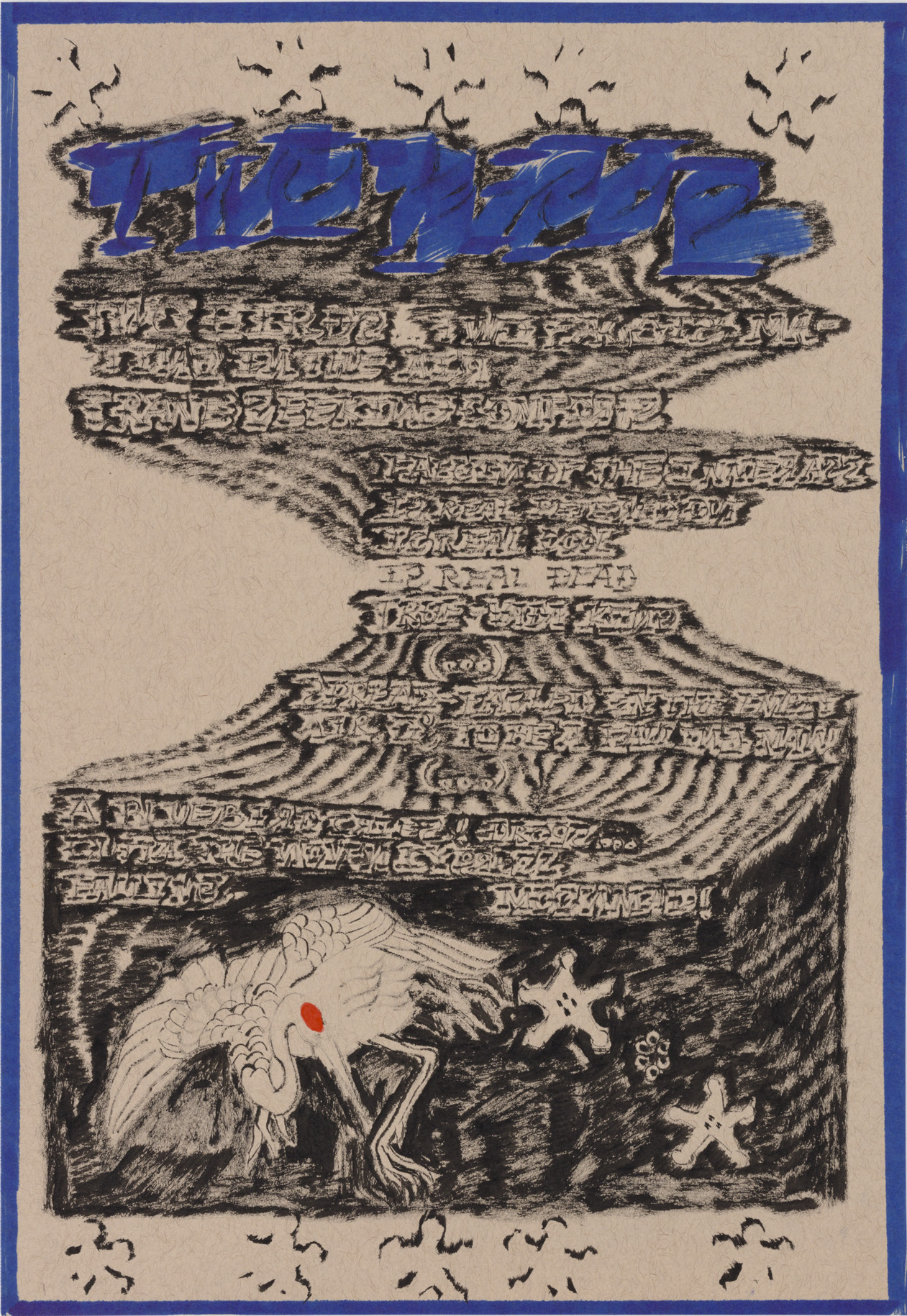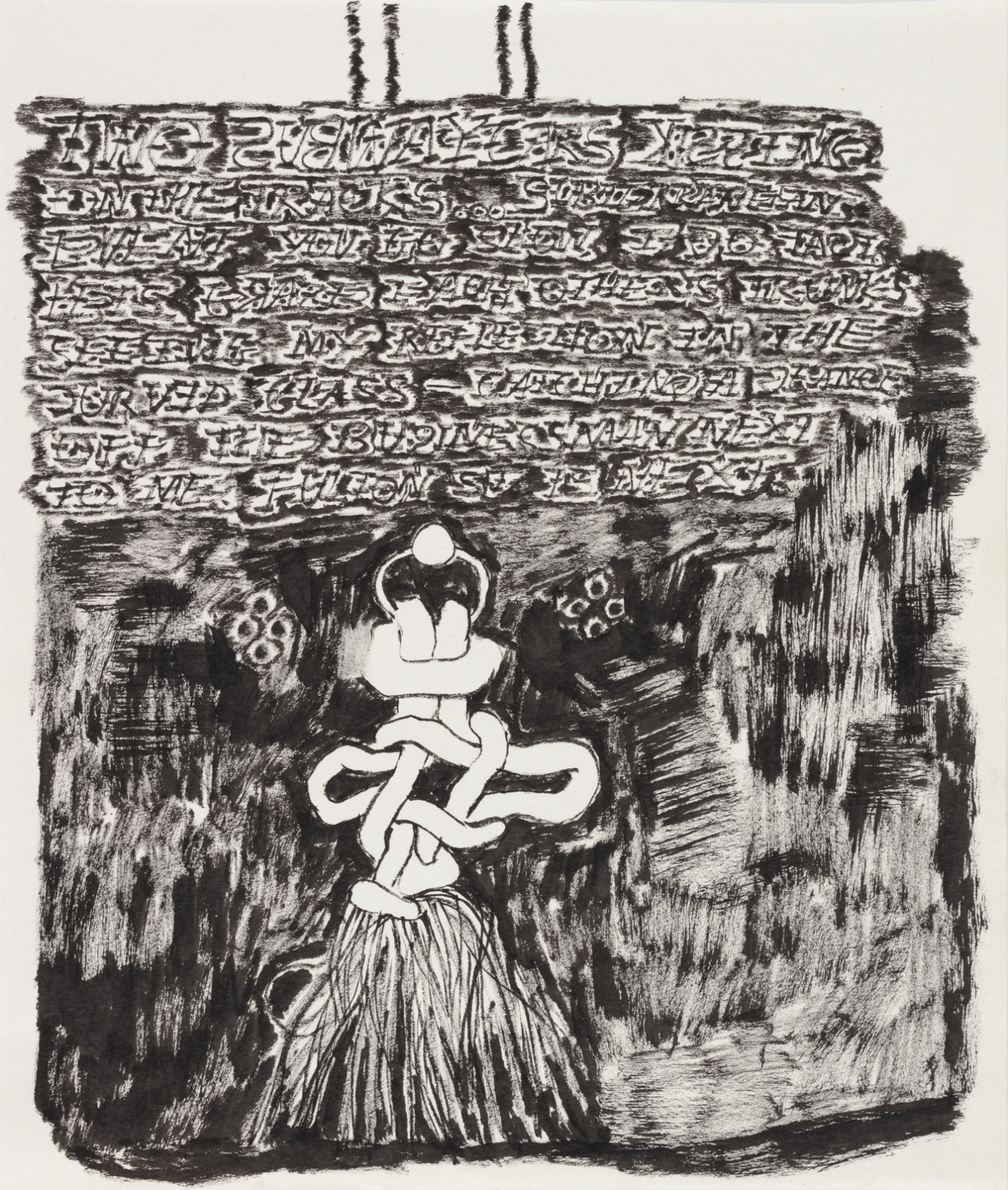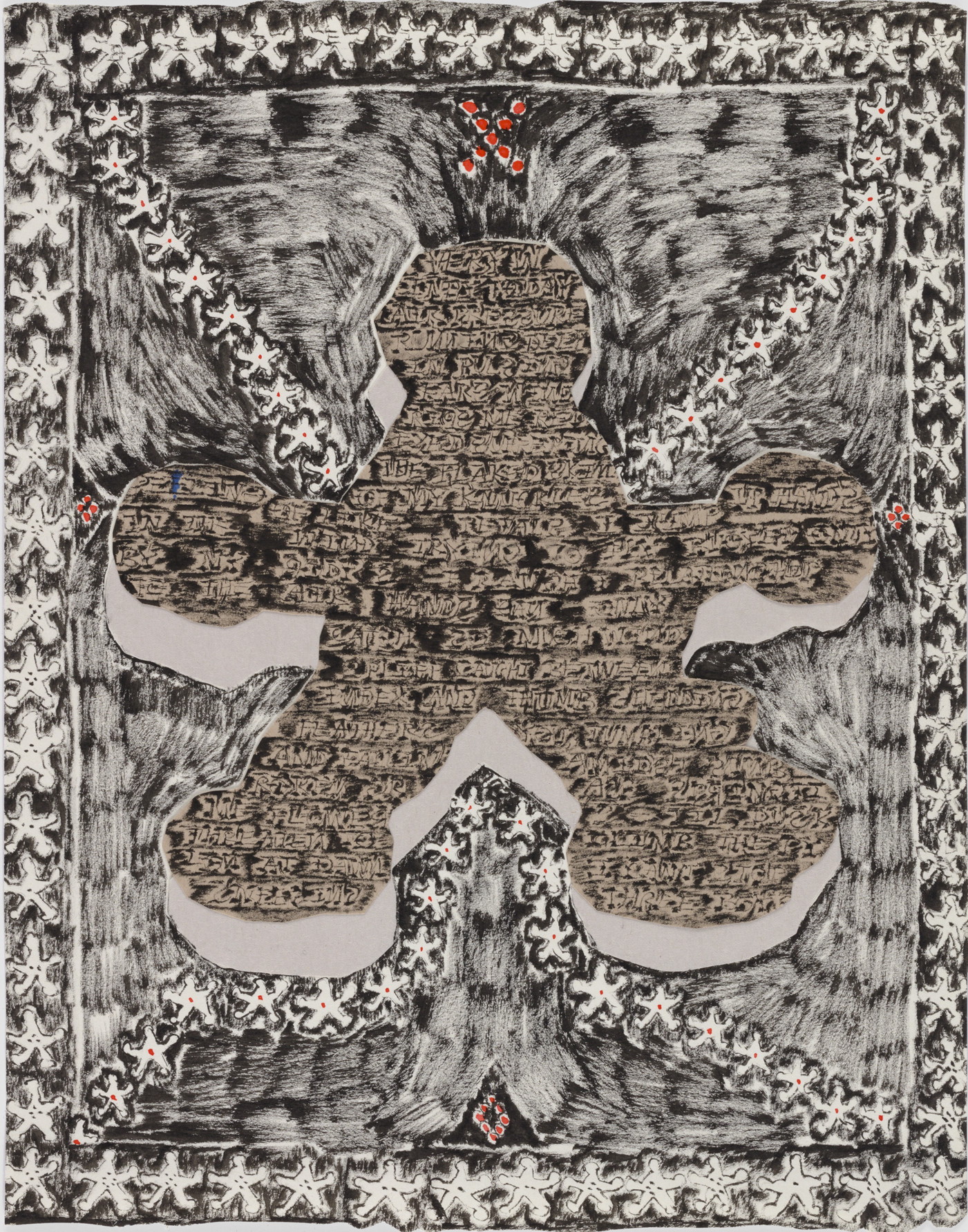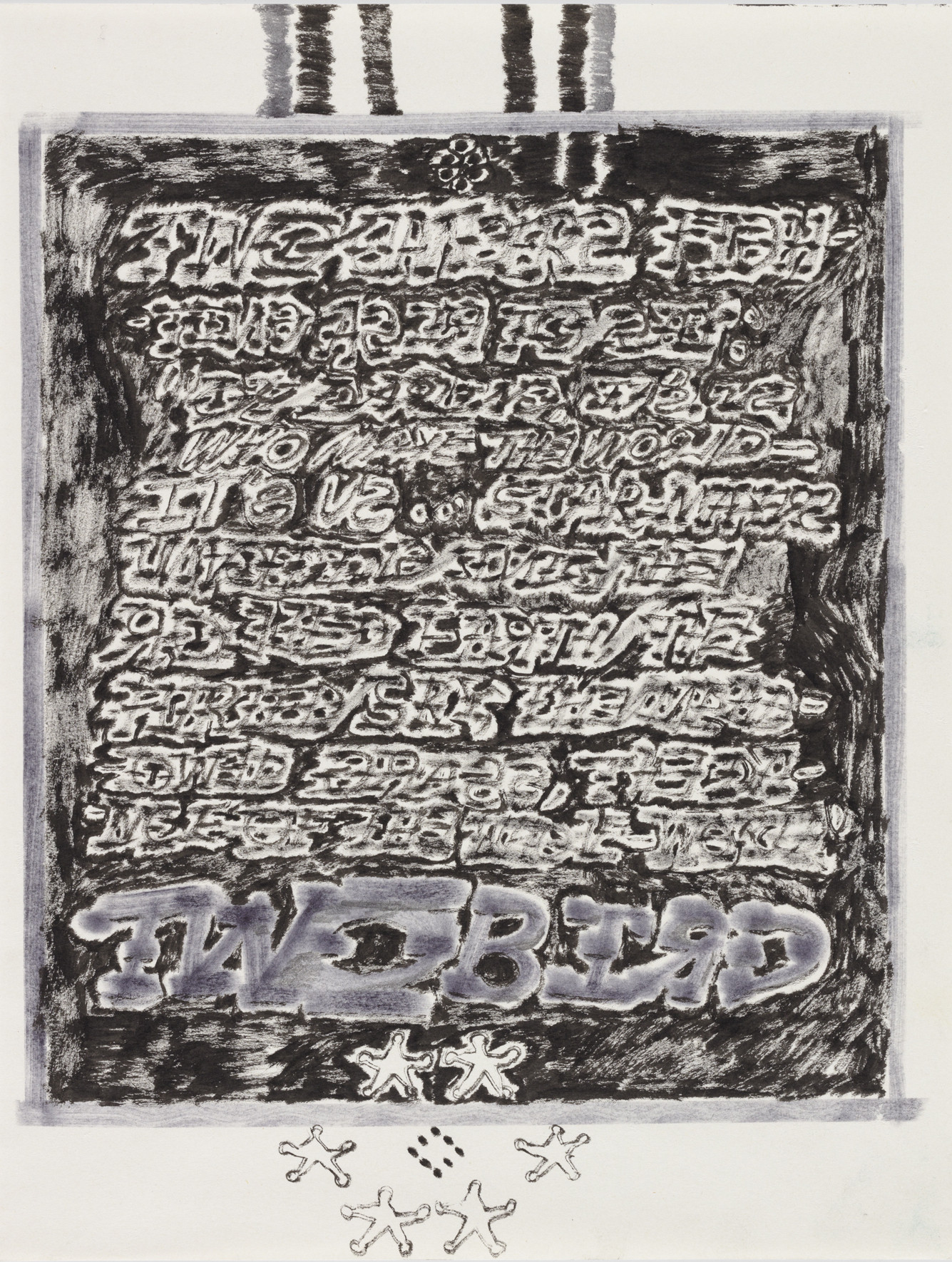Oscar yi Hou deals with the complexity of identity through layers of iconography, symbolic reference, and personal relation within his works. Bringing together multiple levels of narrative, a world of detail can be found between recurring visual structures and symbols that carry with them diverse meanings. Born in Liverpool, England to Cantonese immigrants, yi Hou's given Chinese name (一鸣) refers to a bird: an auspicious symbol that he reiterates throughout his practice as a stand-in for himself. Other symbols like a sheriff’s star, Chinese knots, and prayer beads are often seen floating alongside fragments of text—inscriptions that fuse English with Chinese calligraphy.
While these symbols and text fragments typically drift among the subjects in yi Hou’s portrait works, adorning and complementing the people he paints, they are at their most salient when seen at the marginal edges of the canvas. In A dozen poem-pictures, yi Hou opts to elaborate and fixate on this marginal space, depicting these symbolic inscriptions as subjects in themselves. Moving through the interstices of language as a diasporic subject, these new works on paper penetrate and further fragment yi Hou’s floating symbology and indecipherable text, continuing his sustained exploration into the impossibilities of translation. Enacting a diasporic ‘burial of language,’ yi Hou de/recodes these symbols and pieces of text. As the density of his ink marks permeate through the paper’s porous surface, yi Hou sinks his poetry into the page, sometimes thickly applying ink onto the back of the paper so that it seeps through to the front. The result is a visual sense of transference between inner life and outer appearance, depositing affective and poetic residue in its wake.
Yi Hou’s many hidden poem-pictures speak queerly of intimate scenes of love, sex, labor, movement, water, smoke, sunlight, and wind (once again returning to the vision of a bird in flight). The gesture of rendering these poems opaque is inspired by Chinese calligraphy and the graffiti he encounters in New York City—both being styles of language that remain undecipherable to outsiders. Some of the poems reference the work of other poets, such as Frank O’Hara and Lawrence Ferlinghetti, or are written in response to the work of other artists, namely Martin Wong’s Saturday Night (1992). Markedly intertextual, A dozen poem-pictures proposes such citation as an act of care, drawing out the relationship between literature and visual art. Structurally, yi Hou’s practice can be seen as the artist’s own iteration of the Chinese tradition of the "Three Perfections”—the classical combination of poetry, calligraphy, and painting within a single visual work. Integrated yet abstract, yi Hou’s works describe a complex personhood and an ever-shifting sense of being alongside alienation: able to combine the two without collapse.
Oscar yi Hou (b. 1998 in Liverpool, England; lives and works in New York) received his BA at Columbia University, New York. His work has been included in exhibitions at T293 Gallery, Rome, Italy; Asia Society, New York; Tong Art Advisory, New York; Half Gallery, New York; Rachel Uffner, New York; Kohn Gallery, Los Angeles; and the Royal Academy, UK. James Fuentes will present yi Hou’s solo exhibition of paintings at the gallery in August 2021.
For further inquiries, please contact Katrin or James at jf@jamesfuentes.com.
